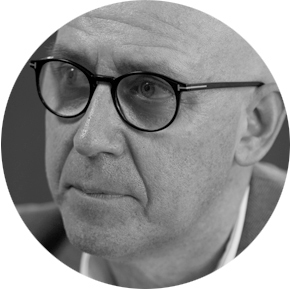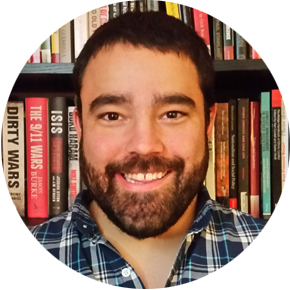The new rector of the French University in Armenia (UFAR), Professor Bertrand Venard, arrived in Armenia a few days before the Artsakh war. With the war, the French professor realized that his mission to help the country academically became even more crucial. Mediamax has talked to Professor Bertrand Venard about the challenge which he faced upon his arrival, the connection to Armenia and his new projects for UFAR students.
Professor Venard, please describe us your background. What have you been doing before becoming a Rector?
I have been in higher education for many years. I received a Doctorate in Management from the University of Paris and a Postgraduate Diploma in Teaching and Learning in Higher Education from the University of Oxford. In terms of background, I worked in the financial industry and in consulting. In the early ’90s, one day I saw an advertisement for going to Vietnam to establish a new business school. I decided to quit consulting and to join academia. I became the founder and Rector of CFVG that is now a leading business school in Vietnam. For me, it was an achievement to create a higher education institution.
Along with my career, I lived in many countries – Vietnam, France, Italy, the USA, the UK. I have had various academic and administrative positions in Higher Education as a Vice-Dean for Research and Dean of a Business School in renowned institution like the University of Cambridge, University of Oxford, Audencia, and University of Pennsylvania. Just before coming to Armenia, I was living in the UK. I was a professor researching into cybersecurity at the University of Oxford.
When I saw the advertisement for the Rector position at UFAR, I thought it was like the Vietnam project, a very ethical project that I could pursue to help a country that needs some support. That is why I have applied for the job.
What did you know about Armenia before coming here? Did you have any connection to Armenia? Was it your first visit to Armenia?
Yes, it was my first visit to Armenia.
As for connections, I am a Christian (Catholic). I know how huge the impact of Christianity on Armenia has been for centuries. Although I am French, I see similarities between the Armenian and French cultures, partly due to the same religion.
The isomorphism of cultures was also proved by my past meetings with Armenians. I had often met colleagues and students who had Armenian roots. It was and is always nice to work with them: they are reliable, hardworking, and friendly.
There is also a connection in the history of my family; during the First World War, in 1915, my grandfather fought against the Turks.
I should also say that when I look at history of Armenia, I feel sorry for Armenians. Similarly, some countries have been suffering for centuries and have been under attack many times. In such situations, many people will complain and feel devastated but do nothing. My philosophy is trying to avoid moral speeches or moral judgments and undertake real actions. So, I have decided to act in favour of Armenia.
War connects your family story to Armenia. Eventually, your personal story about Armenia started with war as well: you arrived in Armenia just before Artsakh war broke out.
I came here to help the country by developing our university-UFAR (of course within my abilities). But, when you face a war, you feel that the reason you are here is even more important.
During the conflict, some people were fighting; others did their duties no matter what was going on: bakers made lavash, butchers prepared meat, and nurses cured the sick, a rector like me made sure that students were learning, studying hard, and getting a job.
At the time of the war, I have never thought of running away. I know that some foreigners left Armenia. I thought my duty was to stay here and do my best for the students, the staff, and the professors.
It is clear that my arrival was at a time that was extremely problematic for Armenia. Therefore, the feeling of duty to help the country becomes even stronger.
I know UFAR was the first university to come up with a reintegration project for students who participated in the war.
Fifteen days after the war, I woke up quite early, and I thought about my uncle, my grandfather and father. During the Second World War, my uncle was killed in 1943, my grandfather was killed in 1944 and my father was wounded by the Nazis in 1945. My grandfather and father were officers. A war caused both visible and invisible wounds (psychological damage that you face when you are at war). Thus, I remember sometimes hearing my father screaming at nights and talking in his dreams, “Go ahead”, “Attack”.
So, I realized that we had students who were serving the country, and we needed to do something for them when they came back. The next day I told the academic director that we should think of reintegration of student soldiers. Whatever the cost, we should help them. Unfortunately, ten of our students died, and we have other students that have been wounded.
We were the first university to prepare such an integration project. What we have undertaken is one-to-one courses, group courses, consultations. We meet these students every month and discuss what their needs are and what else could be done for them. Besides, if they want, we have personalized sessions to discuss their personal feelings, which are always confidential.
Moreover, we have decided to pay their fees for an entire year. We also gave the same amount of money to the families who lost their boys. This sum was to show the families our solidarity for what they had suffered. I met these families, attended the funerals. We do care for them as we consider that all our students are part of our family.
You have already been working at this university for half a year. What do you consider unique about UFAR so far?
The first thing I thought I should do for the university when I first stepped in was undertaking a holistic assessment of the university and outlining a strategy. Throughout 4 months; from September till December 2020, I did 55 interviews and 45 meetings and collected an enormous amount of data. The idea was to learn about the issues that should be improved. This process was extremely intense. It was important for me to meet so many people and I will continue doing so.
There are a few things that I would like to share with you to answer the question of what is unique and special about the UFAR for me. The first thing is integrity, especially if you compare UFAR with other countries’ universities. In some countries you can buy a degree without studying, this can happen in developed countries too. But when you enter UFAR, work is important, you must study hard.
The second thing is professionalization. We pay a lot of attention to the work-related education of our students. Thus, our syllabuses are designed with the market demand in mind. We have implemented special courses that lead our students to finding a job.
The third thing is feminization. More than 70% of our students are female. If we take the computer science department, 56% of students are female; you would never find such numbers in developed countries.
The fourth element is that UFAR is a door to Europe. One of the examples would be the fact that our students have to master four languages. It is essential to know that most students don’t speak French upon their arrival, they are taught at the university. In September of 2020, for instance, 92% of our first-year students didn’t know a word of French. They also have to master Armenian, Russian and English. The more you train the brain, the more things you can do. We do believe that mastering many languages shapes the brain of our students and gives them a lot of opportunities. Also, we are the only university in Armenia that provides our students with a European degree. All degrees that are granted at UFAR are equally recognized in Europe: in France, Spain, Sweden, Germany, etc.
It has also been half a year that you live in Armenia. How do you feel in Armenia? How do you like being surrounded by Armenians?
Armenia has no sea, no oil, a small land, and hence the only resource you have is your people. Throughout the history of humankind when a nation suffers the way the Armenians did, you witness that the suffering makes people stronger. Thus, resilience is a crucial quality of Armenians developed during centuries. In Armenia, your gold is your people. Since it is your best resource, you’d better improve it even more. So, my aim at UFAR is to develop this key resource further through education of the youth, for the benefits of Armenia.
Amalie Khachatryan talked to Bertrand Venard
Photo: Emin Aristakesyan



























Comments
Dear visitors, You can place your opinion on the material using your Facebook account. Please, be polite and follow our simple rules: you are not allowed to make off - topic comments, place advertisements, use abusive and filthy language. The editorial staff reserves the right to moderate and delete comments in case of breach of the rules.